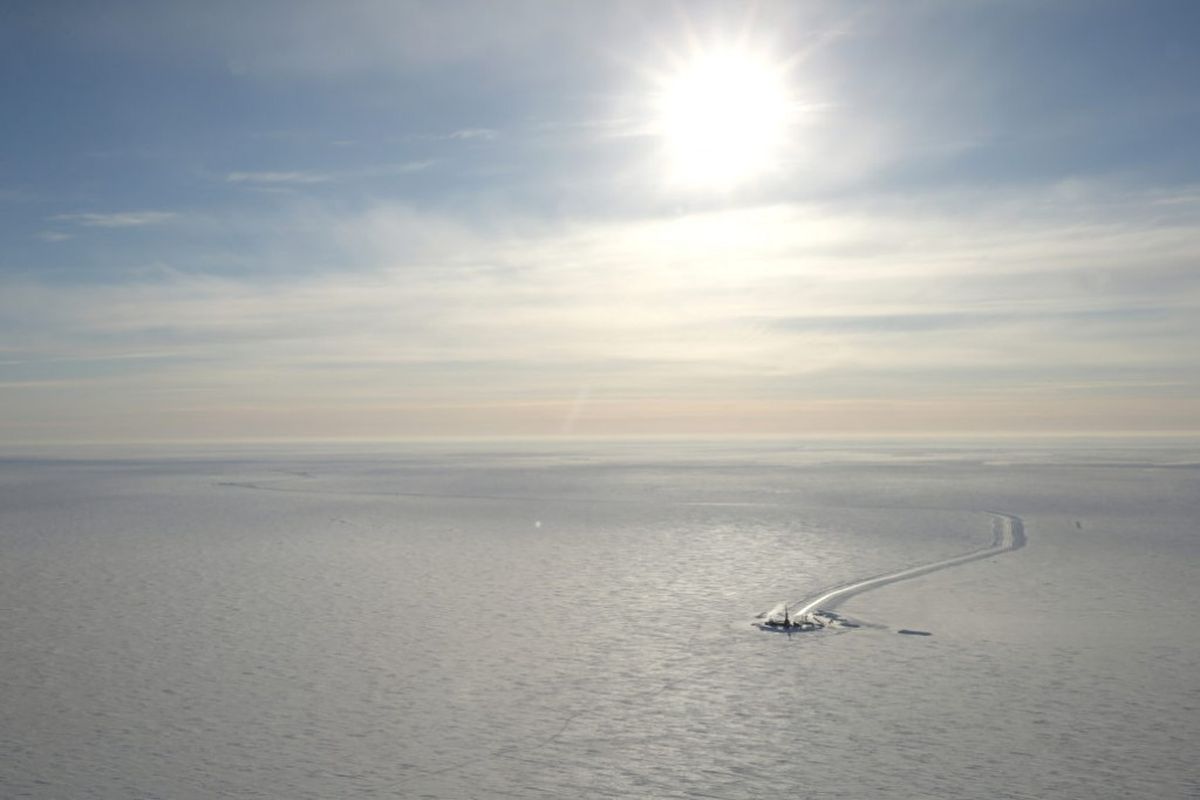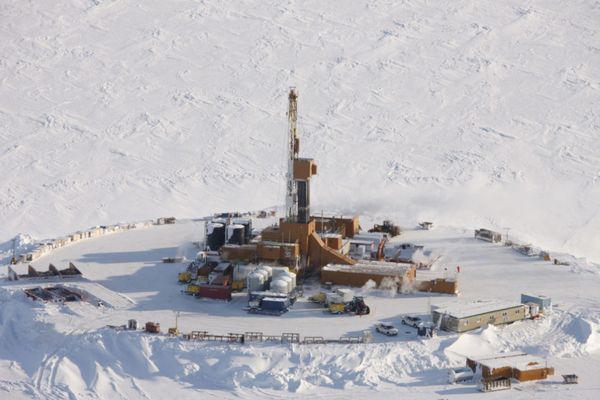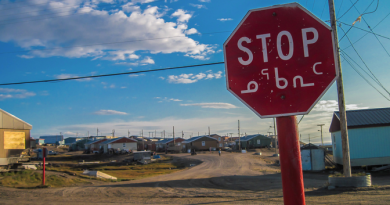Caelus claims offshore Arctic oil discovery that could rank among Alaska’s biggest ever

Caelus Energy Alaska said Tuesday it has made a “world-class” oil discovery that, if estimates prove true, could be one of the largest finds ever in Alaska.
If correct, that production level would make the field more prolific than ConocoPhillips’ Alpine unit that began production in 2000 and reached a production peak of 139,000 barrels in 2007.
The statement from Caelus does not indicate analysis by a third-party engineering firm. The estimates are the company’s internal numbers, a spokesman said Tuesday morning.
The statement also notes that flow-tests, a step in verifying a well’s capabilities, were not conducted “due to seasonal time constraints.”
It said, however, that “extensive sidewall coring and subsequent lab analyses confirm the presence of reservoir-quality sandstones containing light oil.”

The company said its discovery comes after two wells were drilled early this year, and after it conducted 3D seismic exploration across 126 square miles.
“Caelus estimates the oil in place under the current leasehold to be 6 billion barrels,” the statement said. “Furthermore, the Smith Bay fan complex may contain upwards of 10 billion barrels of oil in place when the adjoining acreage is included.”
Light oil can flow as easily as water or corn oil and is easier to extract than viscous or heavy oil.
“Caelus expects to achieve recovery factors in the range of 30-40 percent,” the statement said. “Additional drilling and seismic should improve estimates of oil in place via delineation of undrilled fan lobes and channel complexes imaged on the original 3D seismic.”
In addition to exploration, Caelus Energy, headquartered in Dallas, produces oil at the small Oooguruk field on the North Slope. The company acquired the field in 2013 from Pioneer Natural Resources when that company left Alaska to focus on shale opportunities in Texas.
Caelus owns 75 percent of the leases at Smith Bay. NordAq Energy Inc. holds 17.5 percent and L71 Resources holds 7.5 percent.
The company’s chief executive, James Musselman, said in the statement that “fiscal stability” will be critical for the Smith Bay field’s development, a reference to a stable tax program as cash-strapped Alaska continues to look at reducing subsidies to the oil industry. He said tax credits offered by the state were critical to the discovery.
Related stories from around the North:
Canada: Trudeau and Obama’s Arctic endeavours, Deutsche Welle Ice-Blog
Finland: Minister Rehn not worried about Russian energy dependency, Yle News
Norway: One month after production halt, Eni resumes oil tapping at Goliat, The Independent Barents Observer
Russia: Pumps start at Russia’s northernmost oil field, The Independent Barents Observer
Sweden: Sweden to have 100 percent renewable energy by 2040, Radio Sweden
United States: Trump energy plan calls for more drilling, fewer environmental protections, Alaska Dispatch News



